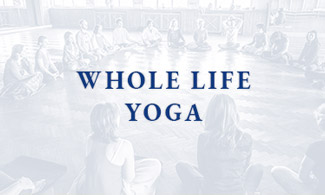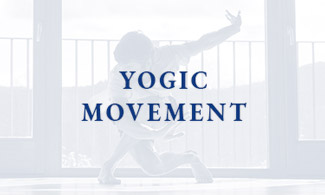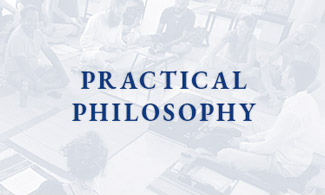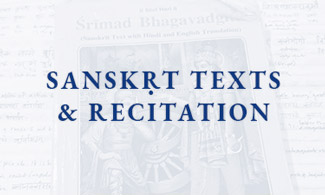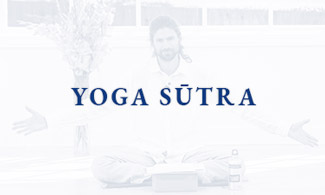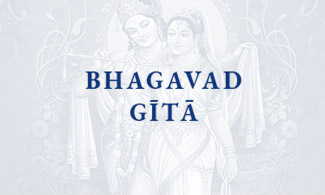
Beyond the Bright Lights
In a recent interview on the Joe Rogan experience, Sadhguru pointed out that a main reason for our human problems is because we have got into deep grooves of searching for ‘happiness’/satisfaction/wellbeing in the wrong place. We search for what we want outside ourselves, when human experience is internal. This deluded habit has been running for a good while now and has only gathered more inertia, to the degree that we sometimes self-sabotage in the name of self-help, in the name of promoting or pursuing human happiness.
After listening, I was reminded of an old teaching story I have heard from more than one of my teachers over the decades and also read in one or more of Osho’s books. It is of Mulla Nasrudhin, a character who is often used to highlight our human folly with humour. In this story, Nas has lost his watch. Night has fallen. Another man comes by and notices Nas scrambling around in the dusty ground in the light of the streetlamp in front of his house.
‘Hey Nas, what’s going on?’
‘Wah! I’ve lost my watch.’
‘Oh I’ll help you, did you lose it here?’
‘No, no, I lost it inside the house!’
‘Then why are you looking here outside in the street?’
‘Because the streetlight is here.’
…
In the Indian tradition, light is often used as a symbol of the light of our awareness. There is a light that never goes out. Even when things are dark or terrible, we can only perceive that because of the light of awareness. As one of my Indian teachers has reminded me and others:
‘Remember, your problem is smaller than you are. It exists in your awareness. You have the power to shift it and to come to see it in different ways.’
In the story, Mulla Nasrudhin looks outside, where he will never find the chronometer that is hiding inside. Why does he look out there? The bright lights of the big city, of the mainstream have come to be associated with ideas of ‘where things happen’, where we can get things done, where we can find happiness… The neon glow of dominant so-called culture steers us into a bottomless pit of pursuit, chasing a ‘happiness’ in a neon glare that blinds us to the recognition that we are looking in the wrong place, and that happiness, the type we really long for, of satisfaction, fulfilment, wholeness, is inside. It is not about acquiring things externally, but rather about how we relate to ourselves, others and everything else.
The Sadhguru interview (at least the first part I have so far listened to) highlighted for me the idea that as a population, we have become so used to looking outside that it has become scary to look within. The inner realm has become dark, unknown, forbidding. It is mysterious, and the exernally oriented, materialist overculture often condemns and disprizes mystery. Mystery is verboten, the incovenient enemy, the uncontainable threat, to an ideology stuck on quantification, domination and control. And we have invested in this external pursuit, identified with it, witnessed it being celebrated, validated, prized and championed all around us.
Yet as the ancient, perennial teachings of Yoga remind us, the external things come and go, they are not eternal. Our task is to be steady amidst them, to use them to attune to our centre, to the depth of our inner realms, and so recognise the true address of the peace that passeth understanding, of the happiness beyond happiness of true fulfilment. When we look to externals for validation or satisfaction, we set ourselves up for disappointment. As Kṛṣṇa emphasises so powerfully in the Gītā. You are the sovereign of your actions. Your life is your responsibility. What you do is up to you. While you have no control over what life brings to you, how you meet and respond to it is up to you. Yet we have no control over the outcomes, or fruits, of our actions. So if we do things in expectation of particular outcomes, we are just setting ourselves up for needless suffering. That is not to say that we cannot learn from our actions and experiences. Let us not be the sowers of unnecessary bitter harvests. When we know that certain types of action tend to lead to pain and suffering, let’s not go there. For example, if we notice that when we speak in a certain way to certain neighbours it brings conflict and ill-feeling, well perhaps I can speak to them in a different way. If I notice that when I eat certain foods at certain times it just zaps my vitality, then leave that habit. And also, do not think that inactivity is an option. As long as we are alive, we are pulsating, breathing, moving in a field of constant activity. Action is inevitable. And as Kṛṣṇa makes clear in the Gītā, when something is inevitable, no point lamenting about it, rather meet it as skilfully as you possibly can, from a place of equipoise.
The more balance and ensuing clarity we can muster, the more likely we are to be able to catch ourselves when we might slip into the long-established, societally-reinforced grooves of habits that would perpetuate our suffering.
But what to do when these habits are so established? When the momentum of this looking externally and trying to manipulate and control reality is so tremendous? When the inertia seems to carry the weight of moutains and the pain of generations?
The user’s guide to the human condition that is yoga offers a way. It works. It has been tried and tested over millennia.
Really? If that were true, why is it not more known, why is it not more prevalent? Why is this method not broadcast in the bright lights?
Well, there are perhaps countless, interwoven reasons, but one is because yoga will not be reduced to a slogan, is not a quick-fix pill. Rather it will change your sense of self. Which means from a certain perspective it will ‘kill you’, ‘destroy you’, ‘take away’ your false limiting ideas. And who wants to give up the ideas and sense of identity they have diligently invested in all these years? Who wants to admit they are wrong, that their understanding is partial, that they have been seeing only a particular skewed sliver of the reality that is really all around us? Who wants that? Who is ready for that? And can yoga really be a ‘solution’ if it is so forbidding?
Yes, it can. Yoga works because it helps connect us to the most powerful force in the universe. This goes by many names, but steel yourself to not stop reading or reject the message when I describe it in terms that have sometimes been bright-lighted in pop songs, the power of love. Yes, love. Not Hallmark card love, but the mighty love of vast vision, of acceptance, forgiveness, reconciliation, of openness and total presence.
Yoga works by inviting us, steadily, into greater presence. The idea of killing ourselves and losing our identity may repel us. But the idea of being ‘killed softly’ and seeing the patterns of our whole life in ways that allow and empower us to move on in fresh configurations has a quite different feel to it. Yoga is a steady, patient process. The work of transforming long-established habits into ways that give us more reliable access to real satisfaction is a lifelong endeavour. ROMA was not built in a day. A kingdom of AMOR is a constant practice. However, yoga works because it invites us on. When we give ourselves the chance to experience the richness of working ‘together’, joined up, as an integrated unit, the whole system is nourished and may even rejoice. Just a glimpse of that can leave a powerful imprint. But a peak experience alone is hardly ever enough to exact lasting change. We have to keep inviting ourselves into cohesion, again and again. Yoga is not a 90 minute class, a weekend workshop, or a 30 day challenge. We can learn tools of tremendous value and gain encouragement and inspiration in such offerings, but practice is everything we do.
Where do I allow my attention to flow? What do I give my energy and awareness to? Am I conspiring to confine myself to a futile scramble in the societally approved dust? Or do I dare to slow down and listen more deeply? Will I dare to look into the deep, dark, vital soil of the previously hidden, sometimes forbidden places? Will I venture into the perspective-changing riches of the inner realms?
To go into the dark, to acknowledge that we may have blinkered ourselves, shut ourselves off from deeper nourishment, is a lot to swallow. We have to forgive ourselves for our previous patterns that kept us from this. In other words, we have to love ourselves. And many of us have not had the greatest encouragement to do this. I know few people born in ‘the West’ who were not deeply and repeatedly wounded in their formative years: their sense of belonging assailed by ideas that their natural inclinations and intuitive wisdom was wrong, inappropriate, not good enough, that their voice was not welcome, that they were ugly, pretty, delicate, clumsy, that they were too this, too that, or that ‘we don’t do that!’ Or most ridiculously of all, to a child who like all of life is pulsating, that they had no rhythm… Oviously I could go on and on. But the net result is often that we carry an idea, inside, in the dark, that we are not only not good enough, but not enough. This idea was sown and planted when we had so few resources to protect ourselves against it. The same idea was all around us, and was, is, reinforced day after day in so many gross, subtle and perhaps unintentional and barely noticed ways. The idea is buried deep. But if we find the courage to dive deeper, we can access a greater treasure. The treasure of love. Courage, heartfulness, is its great virtue. It dares to go where others fear to tread. And it pulsates in each of us.
Why do we keep chasing the happiness outside, when the evidence that it doesn’t work is irrefutable? The fear of going in, deep, to the unknown, through the woundings, is forbidding. It takes love, and love is a practice. Yoga asks us, wherever we are, as best as we can, to bring ourselves together, to invite all of ourselves into the present moment, all of ourselves, even those parts of ourselves that we may habitually have denied, repressed, ignored, neglected. Steadily, softly, gently, again and again, we invite more of ourselves to the party. As we do so, we start generating a new inertia, one powerful enough to counter the weight of the old, established one, a force able to face down the fear, to melt the ice around the heart, to carry us through the acknowledgement of our wounding and into the realm of the inner treasure. As we forgive ourselves, and give more of ourselves the chance to experience presence, we recover our innate capacity for love. We regain our innate capacity to relinquish control, to abandon concern for the outcome, and to offer ourselves fearlessly to the wonder and wholeness of this moment.
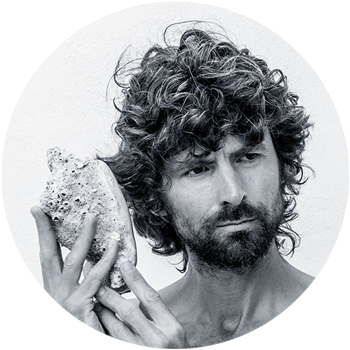
James Boag | Whole Life Yoga
The yoga of the whole human being. Practical philosophy, storytelling, movement, inquiry, looking in ways that reach beyond our habitual ways of looking.
Listen to James’ unique whole life yoga perspectives on the WHOLE LIFE YOGA podcast.

